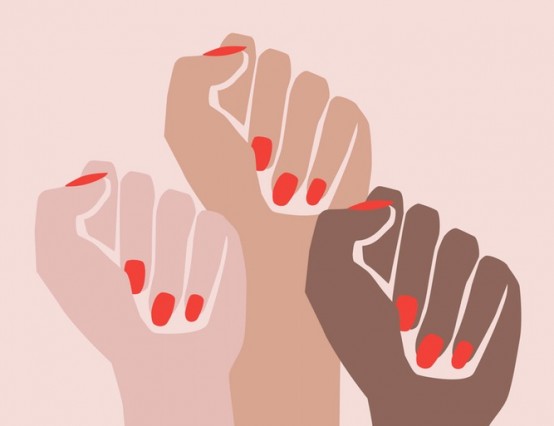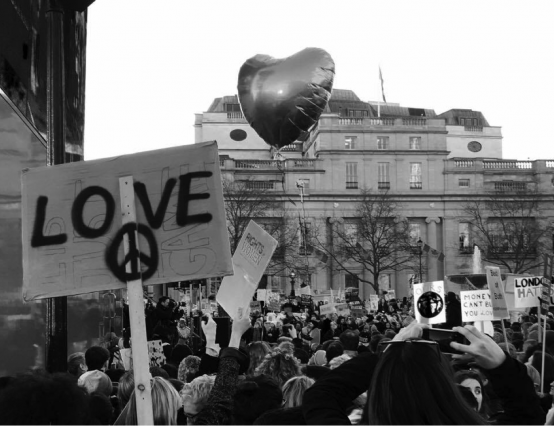Matt Haig is an original and skilful writer. His story of recovery and endurance alongside depression and anxiety is truly inspiring. Through his confrontationally honest and personal writing style, Haig is able to convey his uncomfortable experiences directly to the reader, and it really hits home.
If you endure a mental illness or are simply interested in mental health awareness, I highly recommend this book, and Matt Haig as a writer in general. This book is relevant to everyone and a true eye opener to an individual's journey with mental health issues. He explores how a person's mental health affects not only themselves but also the others around them throughout day-to-day life, he also gives context to mental health within our society. Not only is it informative; Haig's writing provides a clever combination of self-help, statistics and autobiographical writing.
Here are five quotes from Haig's book that stood out for me.
1. "The world is increasingly designed to depress us. Happiness isn't very good for the economy. If we were happy with what we had, why would we need more? How do you sell an anti-ageing moisturiser? You make someone worry about ageing. How do you get people to vote for a political party? You make them worry about immigration. How do you get them to buy insurance? By making them worry about everything. How do you get them to have plastic surgery? By highlighting their physical flaws. How do you get them to watch a TV show? By making them worry about missing out. How do you get them to buy a new smartphone? By making them feel like they are being left behind. To be calm becomes a kind of revolutionary act. To be happy with your own non-upgraded existence. To be comfortable with our messy, human selves, would not be good for business."
2. "Depression is also smaller than you. Always, it is smaller than you, even when it feels vast. It operates within you, you do not operate within it. It may be a dark cloud passing across the sky but - if that is the metaphor - you are the sky. You were there before it. And the cloud can't exist without the sky, but the sky can exist without the cloud."
3. "Talk. Listen. Encourage talking. Encourage listening. Keep adding to the conversation. Stay on the lookout for those wanting to join in the conversation. Keep reiterating, again and again, that depression is not something you 'admit to', it is not something you have to blush about, it is a human experience."
4. "The key is in accepting your thoughts, all of them, even the bad ones. Accept thoughts, but don't become them. Understand, for instance, that having a sad thought, even having a continual succession of sad thoughts, is not the same as being a sad person. You can walk through a storm and feel the wind but you know you are not the wind."
5. "Wherever you are, at any moment, try and find something beautiful. A face, a line out of a poem, the clouds out of a window, some graffiti, a wind farm. Beauty cleans the mind."
Depression can be incredibly isolating. It's not just a passing emotion, it is something that can dominate you and slowly take hold of your life, and sadly in our society there is still a huge lack of understanding and support for individuals that build up the courage to seek help through reaching out to confide in others. As a result so many individuals keep it bottled up inside of them, and this is one of the worst possible things to do.
"When you are depressed you feel alone, and that no one is going through quite what you are going through. You are so scared of appearing in any way mad you internalise everything, and you are so scared that people will alienate you further you clam up and don't speak about it, which is a shame, as speaking about it helps."
The first step to recovery is coming to terms with how you feel, and from then onwards you can start to learn more about yourself and begin to work towards methods that can begin to assist you in your own recovery.
Creative outlets are so important. Writing can be a great tool. Not only can it act as a reflection for your thoughts and actions, it can be a way of acknowledging your feelings and issues that you are dealing with. Try keeping a journal of your day-to-day thoughts and feelings, it can be anything really, words, poems, drawings, colours, collage…
You can look back on it as a method of getting to know yourself better and even tracking your progress. Never throw away your writing, if you want to throw it away, simply hide it away instead. Even if you don't want it right now, it can be insightful in the future and not only can you help yourself through embracing your own experiences but you can help others too.










Wow! This looks like an amazing read :D